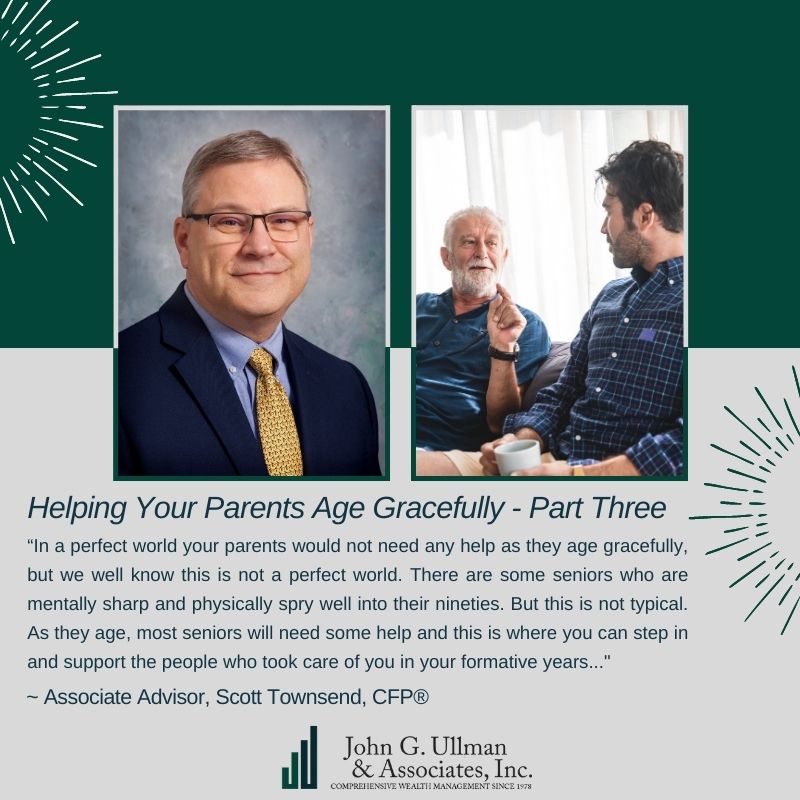In a perfect world your parents would not need any help as they age gracefully, but we well know this is not a perfect world. There are some seniors who are mentally sharp and physically spry well into their nineties. But this is not typical. As they age, most seniors will need some help and this is where you can step in and support the people who took care of you in your formative years. In part one of this series we addressed having a proper approach in helping your parents (Read Here). In the second installment we covered their finances (Read Here). In this third article we will discuss their care needs. In helping with their care, you continue on the path of helping your parents’ age gracefully.
A primary concern with your parents’ is their housing. Many seniors want to stay in the old homestead as long as possible. This has been described as “aging in place.” My colleague, Lizzy DiPietrantonio, recently wrote and excellent article describing this option (Read Here). Others want to move closer to their children or grandchildren, downsize, buy a condo, or rent an apartment. One floor living is often appealing to seniors. If the time comes when they can no longer live on their own, you can be a great help by exploring possible choices. Is moving in with you or a sibling a good option? Is there a top-notch assisted living center close by?
What option works within their budget? Another possibility is a Continuing Care Retirement Community (CCRC). Here, a couple or individual, buys a home and lives independently. If their health declines and they need care, they move within the community to a building that will provide the level of care they need. Again, open communication is key here. What do your parents’ want and what can you do to fulfill their wishes? It wasn’t long after my dad passed away, that my mom realized she could no longer keep up their home on her own. After discussions with each of us children, she decided to move closer to two of my siblings. My sister researched possible apartments and my brothers and I rented a U-Haul to move her belongings thirteen hundred miles. The change has worked well for my mom but it started with a conversation.
A second concern is healthcare. Typically, as we age, we spend more on healthcare. So having a good understanding of your parents’ health coverage is vital. Are they properly signed up for Medicare? Do they have a Medigap or Advantage plan to fill some of the holes in Medicare? Is their prescription plan the most cost effective for the medications they are taking? Every year, during open enrollment, we review these options with clients and their parents. Going with your parents’ to their doctor’s appointments can provide a second set of ears to hear the instructions and another voice to express concerns. Make sure you understand how their Healthcare Proxy works so you will be able to step in if needed.
Finally, be observant to where they may need help. You may need to walk slower because they no long keep up the pace. It might be time for you to clean their gutters to keep the eighty year old off the wobbly step ladder. Are there household tasks that are no longer being taken care of? Is there a neighborhood teenager you can employ to mow the lawn or come in and houseclean weekly? You can teach them how to order groceries online and have them delivered. They might be open to a weekly meal delivery plan. If memory loss is becoming an issue a formal evaluation may be in order.
Growing old can be both terrifying and lonely. But by being a good communicator and an observant witness you can be instrumental in helping your parents’ age gracefully.


